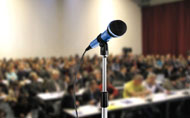
Towards the Recognition of
Non-discrimination Principles at School
-
 Case Studies
60 case studies identified through Europe focusing on intercultural issues, integration, non-discrimination values and human rights at school
Case Studies
60 case studies identified through Europe focusing on intercultural issues, integration, non-discrimination values and human rights at school
-
 Best Practices
12 best practices have been identified throughout Europe on intercultural competences and human rights at school
Best Practices
12 best practices have been identified throughout Europe on intercultural competences and human rights at school
-
 Reports
6 reports presenting the main findings related to the survey on human rights and intercultural issues carried out in the partners' countries
Reports
6 reports presenting the main findings related to the survey on human rights and intercultural issues carried out in the partners' countries
-
 Factual Background
Guidelines on the challenges encountered by secondary school teachers in managing multicultural classes
Factual Background
Guidelines on the challenges encountered by secondary school teachers in managing multicultural classes
-
 Teachers in a Multicultural Environment
Guidelines on improving teachers’ skills in dealing with multicultural environments
Teachers in a Multicultural Environment
Guidelines on improving teachers’ skills in dealing with multicultural environments
-
 Teachers for an Inclusive School
Guidelines on the acquisition of intercultural competences based on understanding human rights and non-discrimination values
Teachers for an Inclusive School
Guidelines on the acquisition of intercultural competences based on understanding human rights and non-discrimination values
Events
The I Have Rights project has been promoted trough conferences and articles.
-
 Conferences
The I Have Rights project was presented in a number of events in order to report about the activities carried out and the results achieved
Conferences
The I Have Rights project was presented in a number of events in order to report about the activities carried out and the results achieved
-
 Training Activity
The training activity 'Expert in Multicultural School Environment' was organised in Siena (IT)
Training Activity
The training activity 'Expert in Multicultural School Environment' was organised in Siena (IT)
-
 Press Review
The I Have Rights project partnership made contacts with web sites focusing on the fields of education
Press Review
The I Have Rights project partnership made contacts with web sites focusing on the fields of education
Partnership
-
 Contractual Partners
From this section it is possible to access to a description of each contractual partner of the I Have Rights project.
Contractual Partners
From this section it is possible to access to a description of each contractual partner of the I Have Rights project.
-
 Schools
From this section it is possible to access to the information about the schools involved in the I Have Rights Project in the 6 European countries involved.
Schools
From this section it is possible to access to the information about the schools involved in the I Have Rights Project in the 6 European countries involved.
-
 Associated Partners
As a result of the exploitation activity a number of associated partners officially joined the project in order to contribute to the improvement of the project impact on their target groups and to ensure the project sustainability by continuing using the project deliverables in the next years.
Associated Partners
As a result of the exploitation activity a number of associated partners officially joined the project in order to contribute to the improvement of the project impact on their target groups and to ensure the project sustainability by continuing using the project deliverables in the next years.
This section of the I Have Rights portal provides administrative information for the project contractual partners and for the European Commission and it is password protected.
Conferences
Homepage > Information & Events > Conferences

 Title of the Conference
Title of the ConferenceIntercultural Education: Challenges and Facilities
 Date of the conference:
Date of the conference:1 December 2017
 Place of the conference:
Place of the conference:Klaipeda, Lithuania
 Description of the conference:
Description of the conference:
The event took place in Klaiped (LT) and involved a total number of 38 participants. Out of the 38 participants, 33 were teachers (29 female, 4 male) from 17 Lithuanian schools (included gymnasiums, progymnasiums, and secondary schools) located in different regions of Lithuania: Western (Klaipeda, Gargždai, Lapės), Central (Kaunas, Prienai, Raseiniai, Ariogala, Šiauliai), Eastern (Panevėžys, Vilnius), and Souther (Druskininkai, Alytus, Varena, Daugai). Also in this meeting participated two representatives (Executive Director Ronaldas Racinskas and Deputy Director Ingrida Vilkiene) from The Secretariat of the International Commission for the Evaluation of the Nazi and Soviet Occupation Regimes in Lithuania, and three representatives from Klaipeda University: prof. dr. Ilona Klaniene, dr. Giedre Straksiene, and dr. Dalia Jakulyte. Most of the participants were teachers of the different subjects, for instance, mathematics, Lithuanian/English language and literature, history, geography, social pedagogues. The smaller part of the participants were directors, vice – directors, and/or school staff, beside that important to note that in some cases director/or vice - director also works as a teacher.
 Programme:
Programme:
 Programme:
Programme:







